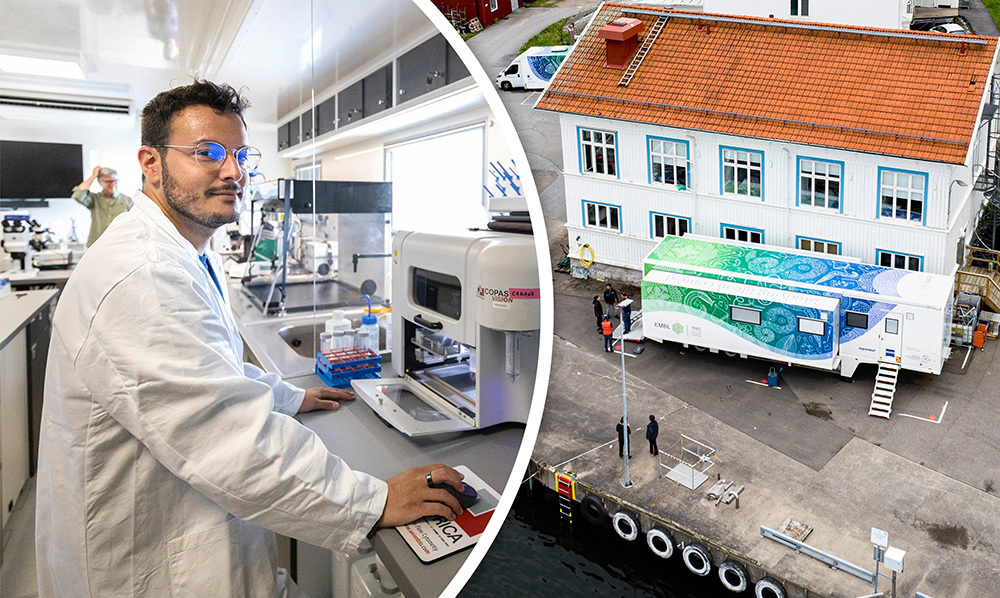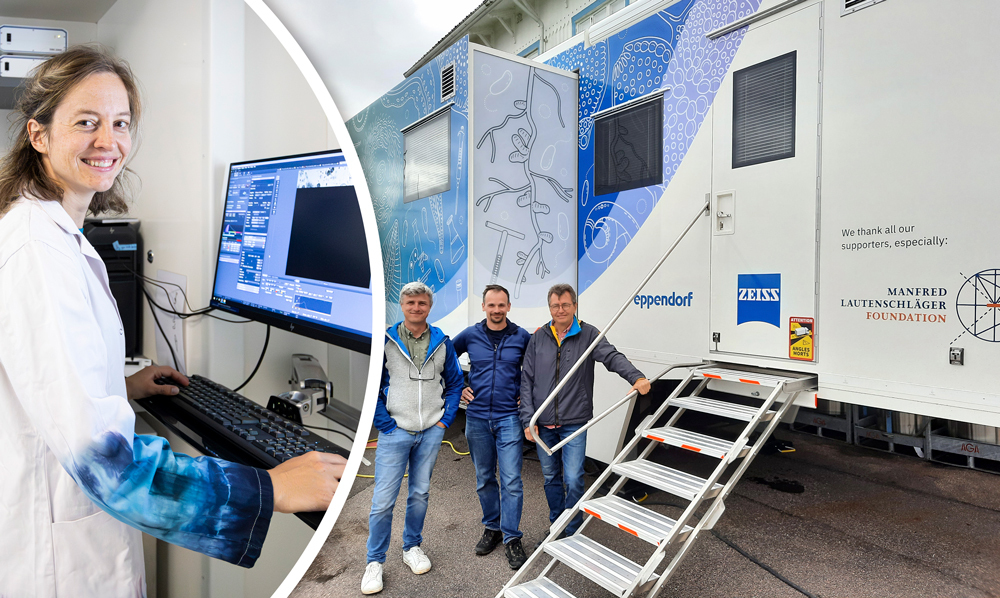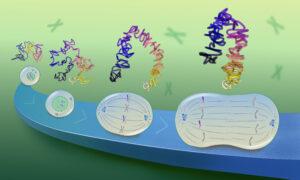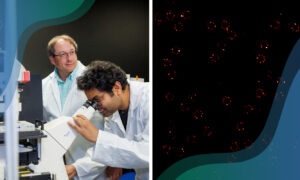
Bringing advanced life science technologies to the field
EMBL’s newly deployed Advanced Mobile Laboratory (AML) is bringing cutting-edge technologies to the European coast to help researchers study ‘life in context’

EMBL’s flagship Planetary Biology project – Traversing European Ecosystems (TREC) – received its final component this week with the official launch of the new EMBL Mobile Services. The services will be housed in the Advanced Mobile Laboratory (AML), a sophisticated laboratory on wheels. The AML brings cutting-edge technology directly to the field, helping researchers carry out advanced sample preparation, metadata acquisition, and analysis – immediately after sample collection.
With the ambitious aim of sampling soil and water at 120 sites in 46 regions across Europe within two years, the TREC expedition aims to study life across all biological scales and help provide solutions to some of the most pressing global challenges of the day. Launched in March 2023, TREC has already passed through 15 sites in 11 European countries, bringing EMBL researchers together with many partners and collaborators to investigate life at land-sea transects all along the European coast.
An integral component of TREC is EMBL’s Mobile Service, which brings state-of-the-art technology and methodology to the field to enable unprecedented experimental standardisation, high-end fresh sample processing, and data integration. Niko Leisch, Operational Manager of EMBL Mobile Services, has been working for over a year to help develop and deploy the advanced mobile lab. “Usually, we are going to stay for one month on-site, and together with my team, we will then enable scientists from EMBL, partner institutes, and local institutes to do their science on the spot,” said Leisch.
The team already offered these services at two of the TREC stops – Roscoff, France, and Tallinn, Estonia – albeit without the now complete trailer, providing more permanent housing for the equipment. The first stop for the completely fitted-out vehicle is Kristineberg in Sweden. Here, the services will enable researchers from EMBL as well as collaborators from partnering institutions to process and analyse samples collected in surrounding regions.
In addition to equipment to aid sample preparation for cryo-electron microscopy – such as a high-pressure freezer and a plunge freezer, the AML also contains advanced technologies for cell sorting, single-cell transcriptomics, and automated confocal microscopy.

To create the AML, EMBL worked with the Toutenkamion Group, a French industrial mobility company. “The main challenge of this large-scale project was to understand the high-tech equipment that would be integrated into this new unit, as well as to understand the extent of the jobs that would be carried out by the scientists,” said Franck Neveu, Project Manager responsible for the AML project at Toutenkamion Group. “A visit to the EMBL site in Heidelberg allowed us to meet these people, to discover their daily work tools, to exchange and understand their interactions.”
EMBL has long been a leader in scientific service provision for the biological sciences, and the mobile labs will help bring such services within reach of many more researchers in its member states. By providing these technologies across Europe throughout the expedition, EMBL Advanced Mobile Services will also support the interdisciplinary approaches underpinning TREC.
“To enable molecular and cellular analysis, we needed to bring the state-of-the-art technologies as close as possible to the environment,” said Yannick Schwab. “We believe that the use of the mobile lab will go far beyond the TREC expedition with a growing demand for this service to answer diverse questions.”
EMBL acknowledges the generous support of many institutions, donors and sponsors, in particular the Manfred Lautenschläger Foundation, as well as Eppendorf SE, and Carl Zeiss Microscopy, in helping make the AML possible. We also thank Thermo Fisher Scientific and Ted Pella, Inc. for donating scientific instruments for the AML.


